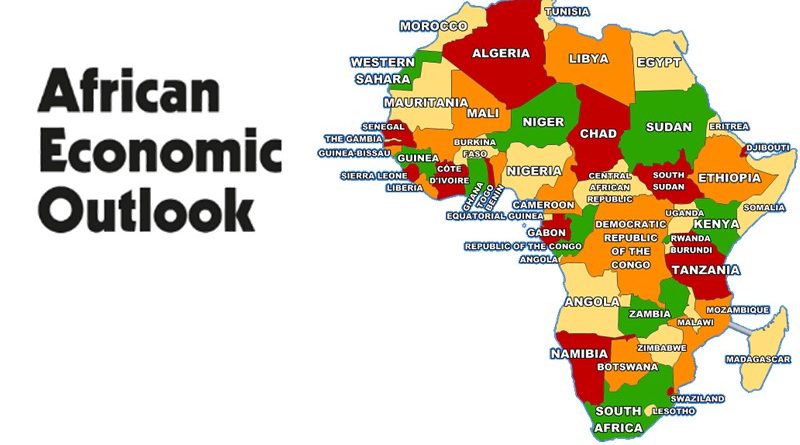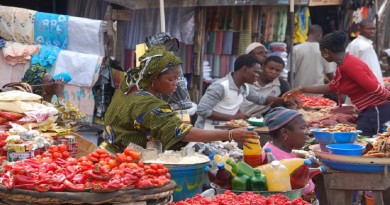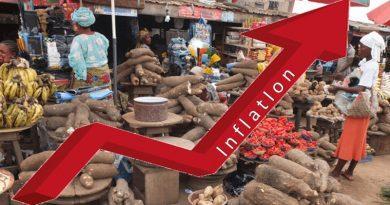African Economic Outlook 2022
African Development Bank (www.AfDB.org) and International Monetary Fund (IMF) experts have stressed the urgency of mobilizing climate financing for Africa during a panel discussion on the African Development Bank’s 2022 African Economic Outlook (https://bit.ly/2Z1dRwt) hosted by the IMF in Washington, DC on Monday.
Despite having 17% of the current global population, Africa has accounted for a negligible 3% of cumulative worldwide CO2 emissions historically. However, climate change and extreme weather events disproportionately affect Africa, with severe economic, social, and environmental consequences for its people.
The African Economic Outlook makes it clear that the pandemic and the Russia-Ukraine war could leave a lasting impression over several years, if not as much as a decade. Meanwhile, around 30 million people in Africa were pushed into extreme poverty in 2021 and about 22 million jobs were lost in the same year because of the pandemic. And the trend is expected to continue through the second half of 2022 and on into 2023.
The economic disruptions stemming from the Russia-Ukraine war could push a further 1.8 million people across the African continent into extreme poverty in 2022. That number could swell with another 2.1 million in 2023.
The continent’s additional financing needs for 2020-22 are estimated at $432 billion. Financing African countries’ nationally determined contributions—public pledges from countries on how they plan to play a part in post-2020 collective action on climate change—will require up to 1.6 trillion between 2022 by 2030. The continent loses between 5% and 15% of gross domestic product to climate change. Collectively, African countries received only $18.3 billion in climate finance between 2016 and 2019. This leaves a climate finance gap of up $1288.2 billion annually from 2020 to 2030. Download the main report Download The Highlights
Participants at the meeting heard that African countries need to mobilize $1.6 trillion between 2022 and 2030 to meet their Nationally Determined Contributions to fight climate change. So far, they have only received $18.3 billion annually, leaving a financing gap of $108 billion annually. With current trends, Africa’s NDCs will not be achieved.
Africa has huge comparative advantages to lead the world in this new green transition, but it lacks the capital to do so, African Development Bank’s Acting Chief Economist and Vice President Kevin Urama said in his presentation.
The panel comprised Prof Urama, IMF’s Assistant Director Fiscal Affairs Department and Climate Change Policy Coordinator, James Roaf, and Anthony Simpasa, Acting Manager of the African Development Bank’s Macroeconomic Policy, Debt Sustainability and Forecasting Division. It was moderated by Cathy Pattillo, Deputy Director of IMF’s African Department.
Urama emphasized that the findings of the 2022 African Economic Outlook, show that the structure of climate finance is very complicated and creates a misallocation of resources.
As a result, the main objective of climate finance – to support climate-vulnerable countries – is not being achieved.
“One fundamental, existential issue for Africa is climate change. The countries that are receiving climate financing are the less vulnerable ones,” Urama noted.
Abebe Selassie, Director of the African Department at IMF observed that African policymakers face the unenviable task of needing to invest trillions of dollars in important energy transition that the region needs to advance its development.
Selassie said: “At the same time, they are being asked to think about the adverse effect that this may have on climate change, but advanced countries who benefitted from climate unfriendly policies are unwilling to support development in the region. This is one issue that policymakers raise with us when we engage with them on the financing challenges they face.”
Selassie described the findings of the 2022 African Economic Outlook as “sobering”, observing that “it raised some profound issues.”
IMF’s Assistant Director in the Fiscal Affairs Department and Climate Change Policy Coordinator, James Roaf identifiedadaptation as the biggest issue for Africa.
Roaf said: “The African Economic Outlook rightly stresses the need to integrate climate objectives in overall sustainable development pathways. We need to focus on making the most of the opportunities that the clean energy transition offers so that climate mitigation and adaptation policies come hand in hand with rising prosperity.”
He further drew attention to what countries can do themselves to maximize climate finance and make the best use of it.
“Mobilizing the private sector is critical, with policies such as carbon pricing to encourage investment in renewables, or improving adaptation incentives by reinforcing property rights or strengthening regional trade.”
In closing, Urama stressed the need for a different approach to solving the climate challenge in Africa.
“What I see are opportunities to do things differently so that we are not using an old map to chart a new world. This will include tradeoffs,” he said.” How do we work together as the global community to solve this global commons challenge for ourselves, our children, and future generations?”
The theme of the 2022 African Economic Outlook (https://bit.ly/2Z1dRwt), Supporting Climate Resilience and a Just Energy Transition in Africa, highlights climate change as a growing threat to lives and livelihoods in Africa. Click here (https://bit.ly/3BkWdGH) to watch a recording of the panel discussion.



